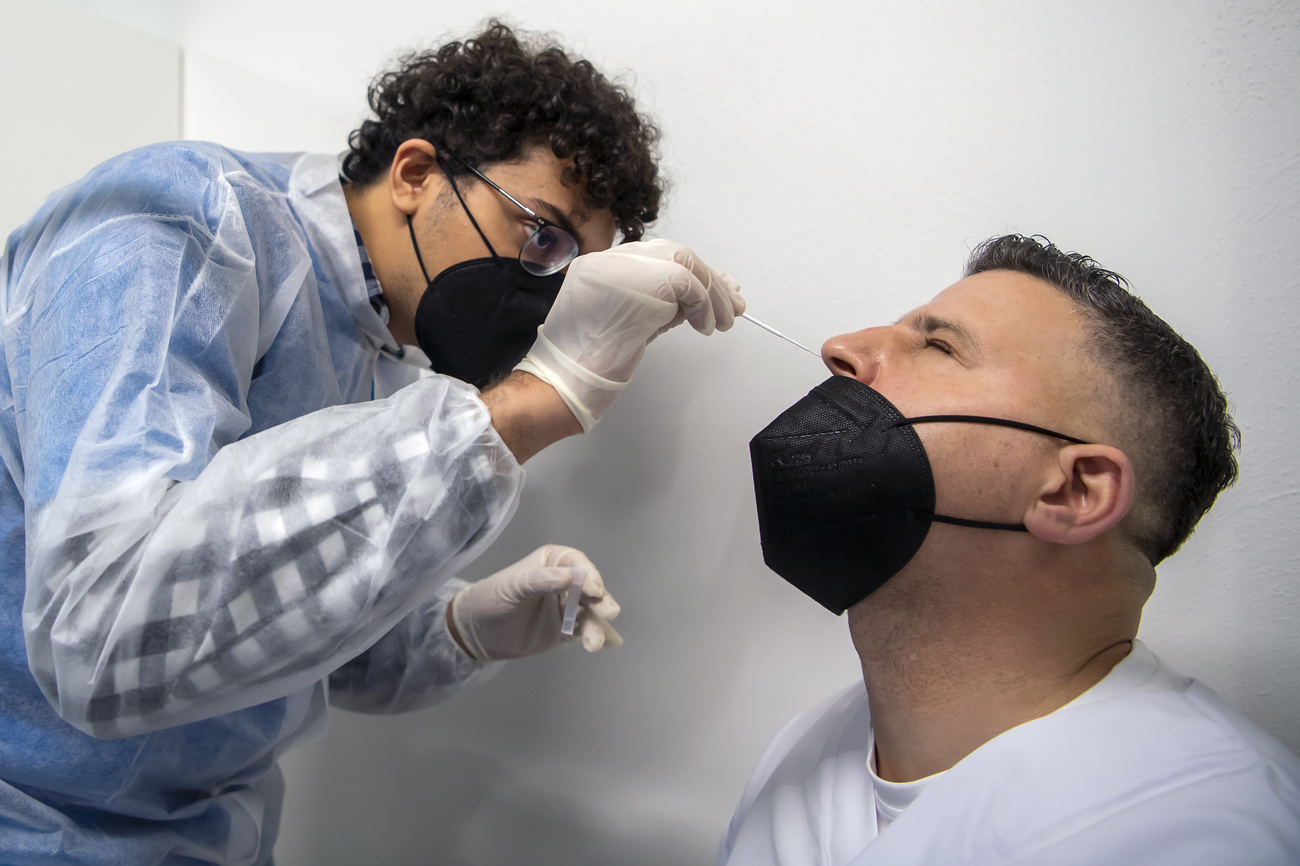
Task force member: Omicron ‘could lead to 30,000 cases a day’

Half the country could come down with the coronavirus by the end of January, if the Omicron variant continues to spread at its current pace, Swiss Covid-19 science task force expert Richard Neher says.
In an interview with the SonntagsZeitungExternal link, Neher added that 30,000 cases a day were “conceivable” in January.
“20,000 cases a day in Switzerland and an equally high estimated number of unrecorded cases mean that around 3% of the population is getting infected each week,” Neher told the newspaper. “If the virus continues to spread at this pace, it will quickly become more. In this scenario, half of the country could become ill with corona within weeks.”
Initial data from Great Britain and South Africa show that Omicron’s courses are “somewhat milder than for Delta”, said the professor and expert on virus evolution at the University of Basel. But even with Omicron the number of hospitalisations is “not insignificant”, he added.
Limiting contacts helps, so measures could be taken for large events and where people meet indoors without masks, continued the professor.
New coronavirus cases topped 19,000 last Thursday, the last time data was released. On Friday the government decided not to introduce any new pandemic measures for the time being after it tightened restrictions for the unvaccinated on December 17.
Intensive care units
For his part, the new Swiss president Ignazio Cassis told SonntagsBlickExternal link that the present aim was to avoid overloading intensive care units. “Currently there is an around 80% occupancy rate in intensive care units throughout Switzerland – half of which are corona patients – which is manageable,” said Cassis, who is also a medical doctor. Capacity could be raised if necessary, but this is not the case at the moment, he added. Cantons could help each other out, as they did in the first wave, when needed.
“We are ready to react at any moment, also with federal measures such as civil protection and the army,” added Cassis.
Lukas Engelberger, president of the Conference of Cantonal Health Directors, said he considered the next days to be “key”. New data would be available by Wednesday, which would help determine which way the pandemic was going. But if there is more pressure on intensive care, the government would have to decide on new measures or at least put measures out to consultation with the cantons, he told the SonntagsZeitung.
Outlook
Meanwhile, the vice-president of the science task force and hospital doctor Urs Karrer warned that Omicron should not be underestimated. “Our current biggest worry is having treat a large number of Covid-19 patients in January and February while at the same time having a staff shortage, because they are ill, or in isolation or quarantine,” Karrer told the NZZ am Sonntag,External link
In terms of outlook, Neher estimated that the worst of the wave of Omicron might be over by the end of January. At some point the virus will run out of hosts, as has been seen in some parts of South Africa. But the virus “will not disappear and will certainly preoccupy us next winter,” he predicted, “But not to the point of causing another crisis.”

More
Coronavirus: the situation in Switzerland

In compliance with the JTI standards
More: SWI swissinfo.ch certified by the Journalism Trust Initiative


























You can find an overview of ongoing debates with our journalists here . Please join us!
If you want to start a conversation about a topic raised in this article or want to report factual errors, email us at english@swissinfo.ch.